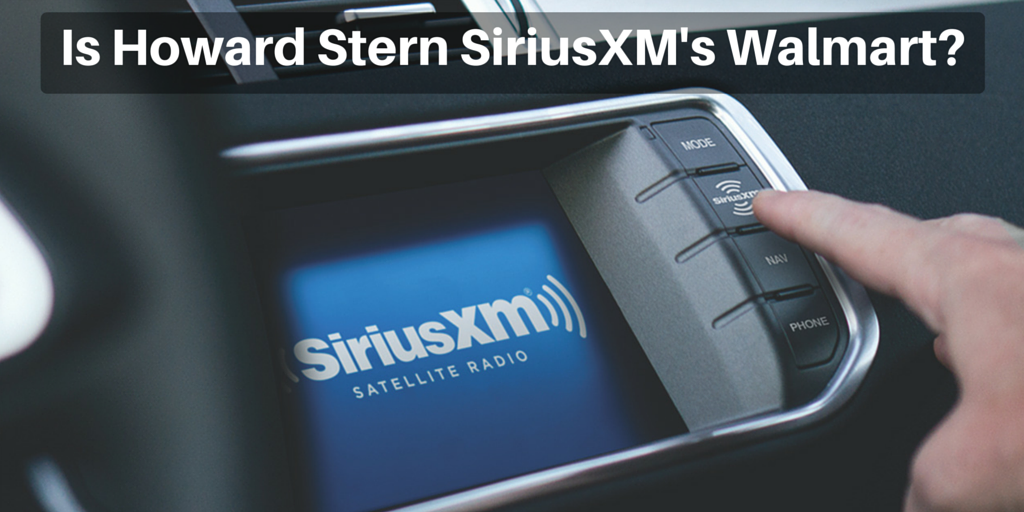Can high revenue concentration cause future problems for SiriusXM Satellite Radio provider? A lesson in Pareto (80-20 rule) and revenue concentration.
This article was originally published on LinkedIn on December 1st, 2015. If you want to leave a comment or prefer reading on LinkedIn, you can go here - Is Howard Stern SiriusXM's Walmart
There are a lot of big names in the title of this article:
- Howard Stern - the "King of all Media"
- Walmart – retail store giant
- SiriusXM – the premier satellite radio provider in the United States, Canada, and Puerto Rico
Each of these giants has taken different paths, but all have seen meteoric growth to become the giants they are today. Walmart opened its first store in Arkansas in 1962 and a little over 50 years later has over 11,000 stores in 27 countries.
Howard Stern started out on college radio at Boston University in the early seventies and after traveling from station to station; found a home in New York City, first with NBC Radio, then K-Rock, before ending up at Sirius. For more info on Mr. Stern’s early career, watch the movie “Private Parts”. Sirius does not release listener data, but Mr. Stern’s listeners were estimated at 12 million prior to moving to Sirius and with Sirius growing at 11% a year, it is safe to say he has at least that many listeners.
Sirius launched in 2002 and had grown to almost half a million subscribers prior to signing Howard Stern in 2004. Subscribers would grow to over 3 million prior to Mr. Stern’s first day on the air, and by the 2008 merger with XM, subscribers hit 8.3 million. Today, according to the SiriusXM Corporate Overview on their site, they have “more than 28.4 million subscribers”.
For those Howard Stern fans out there, we are within 2 months from the end of a five-year contract. At the end of this contract, Mr. Stern will have been with SiriusXM for 10 years. When he signed on the dotted line in 2004, I was already a Sirius subscriber. I was living in New York City and rock radio in the city was on life support, plus buildings affected the radio signal in my apartment. At the time, Internet radio and podcasts were not a great option as they were fledgling industries. Also, I was not a New Jersey Giants or New Jersey Jets fan. So the combination of a reliable signal, NFL games, and a variety of music stations had me sold.
Where does revenue concentration fit in? Read the rest of the article on Eagle Strategy Group to see.





No comments:
Post a Comment